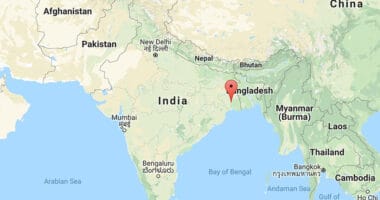This was one of the most prominent post-political decision reviews in American history, however it won’t be the last. Political decision respectability and security specialists are progressively pushing to make hazard restricting reviews (RLA) a legitimate necessity for races in each of the 50 states. Over the most recent couple of years, 11 states have passed laws requiring, permitting, or guiding danger restricting reviews. The thought is to construct trust in frameworks that have gotten dark as they are more mechanized.
“Machine checking is extraordinary however should we confide in them?” says Ben Adida, who runs the political race security philanthropic VotingWorks. “The general purpose of danger restricting reviews is that machines are incredible for speed, exactness, and objectivity—however we should review them to ensure they don’t commit errors and they haven’t been hacked.”
After a to a great extent mechanized starting tally, a danger restricting review takes few polling forms which people count and check as a detriment to the underlying result. The cycle has been assembled and dissected by analysts, casting a ballot specialists, political race authorities and PC researchers in the course of the most recent twenty years, however has as of late began to be utilized in critical decisions. (Colorado was the principal state to pass hazard restricting review enactment in 2009; it’s first statewide RLA occurred in 2017.)
Adida’s charitable, dispatched in 2018, has assembled open source and free programming to help direct these reviews efficiently and rapidly, in the desire for getting states to receive RLAs all the more broadly. VotingWorks assisted Georgia with running their review this year and Adida is confident the thought will spread.
Starting with a dice roll
In Colorado, the cycle begins with a major, strange, public service which anybody can join in: The state rolls a 10-sided bite the dust multiple times to make an irregular “seed” number that commences the review. That figures out which polling forms will be checked against the outcomes. The entire thing is done this approach to take a stab at building trust.
“The truth that hazard restricting reviews are public services that the general population and press can go to is something positive that will assist citizens with seeing decisions to be more reliable notwithstanding the political race being more dependable in reality,” Adida says. “We will consider how we name it and discussion about it. Indeed, even the word review itself has a great deal of negative implications and that is understandable.”
So what happens now? The following four years could see the same number of as half of all states receive hazard restricting reviews with those objectives. Meanwhile, beside the last phases of Congressional affirmation, this specific political decision is finished.





